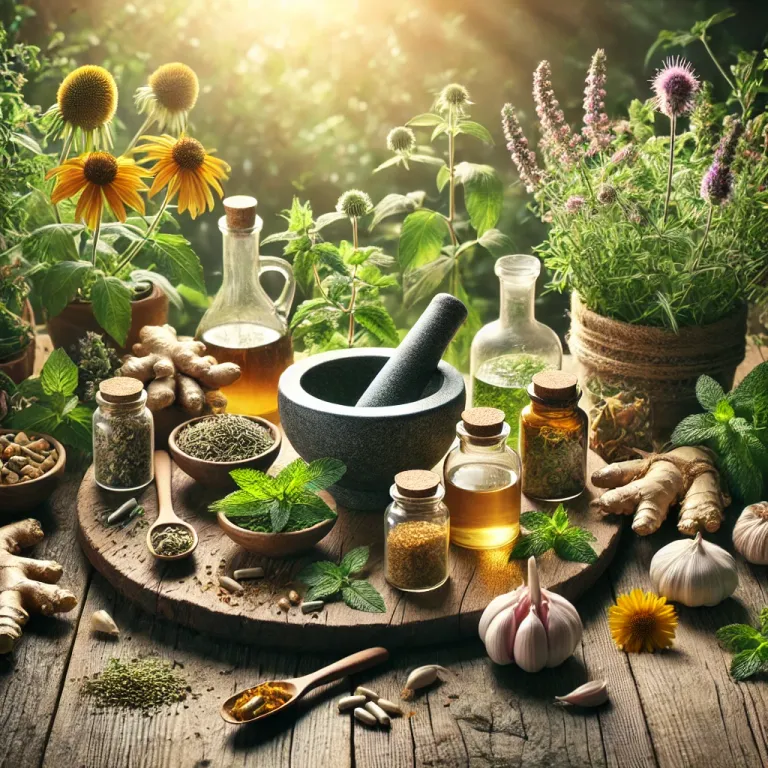
Herbal medicine has been used for centuries as a natural way to treat ailments and promote overall well-being. By understanding the power of plants and incorporating them into your routine, you can tap into this ancient practice to support your health. Here’s a comprehensive guide on harnessing the power of healing herbs.
1. Understanding Herbal Medicine
Herbal medicine is the use of plants and plant extracts to address various health issues. It is a traditional practice rooted in healing systems from cultures across the world, such as Ayurveda, Traditional Chinese Medicine, and Indigenous remedies. These natural approaches often serve as alternatives or complements to modern medicine.
2. Common Healing Herbs and Their Uses
Echinacea
- Boost Immunity: Often used to prevent and treat colds and infections.
- Forms: Available as teas, capsules, and tinctures.
Ginger
- Digestive Aid: Helps relieve nausea, indigestion, and motion sickness.
- Anti-Inflammatory: Reduces inflammation and pain.
Turmeric
- Anti-Inflammatory: Contains curcumin, which helps reduce inflammation.
- Antioxidant: Protects cells from oxidative damage.
Chamomile
- Calming Effect: Reduces anxiety and promotes sleep.
- Digestive Aid: Soothes digestive issues like bloating.
Garlic
- Heart Health: Helps lower cholesterol and blood pressure.
- Antimicrobial: Fights infections and strengthens the immune system.
Peppermint
- Digestive Relief: Alleviates symptoms of irritable bowel syndrome (IBS).
- Pain Relief: When applied topically, helps relieve muscle pain and headaches.
3. How to Use Healing Herbs
Teas and Infusions
- Simple Preparation: Steep herbs in hot water to extract their benefits.
- Daily Use: Easy to incorporate into daily routines for ongoing wellness.
Tinctures and Extracts
- Concentrated Form: Alcohol-based extracts for potent effects.
- Dosage Control: Allows easy measurement and controlled intake.
Capsules and Tablets
- Convenient: Pre-measured doses in pill form.
- Standardized: Often contain standardized amounts of active ingredients.
Topical Applications
- Salves and Creams: Applied to the skin for localized relief.
- Essential Oils: Used in aromatherapy or massage for relaxation and healing.
4. Benefits of Herbal Medicine
- Natural Healing: Herbal remedies often have fewer side effects compared to synthetic drugs.
- Holistic Approach: Supports overall wellness, treating the root cause rather than just symptoms.
- Cost-Effective: Herbs are generally more affordable than prescription medications.
- Accessible: Many healing herbs can be grown at home or found in natural stores.
5. Precautions and Considerations
- Consult Healthcare Providers: Always seek professional advice before starting any herbal regimen.
- Interactions: Be aware of potential interactions with medications or other herbs.
- Quality and Source: Purchase herbs from trusted suppliers to ensure purity and safety.
- Proper Identification: Correctly identify herbs to avoid toxicity.
- Dosage and Safety: Follow recommended dosages to prevent adverse effects.
- Allergies: Be mindful of potential allergic reactions to specific herbs.
Final Thoughts
Herbal medicine offers a natural and effective way to support your health when used correctly. By understanding common healing herbs, their uses, and safe practices, you can incorporate these powerful remedies into your life.
If you enjoyed this guide, be sure to like, share, and subscribe to our content for more tips on natural health and wellness!